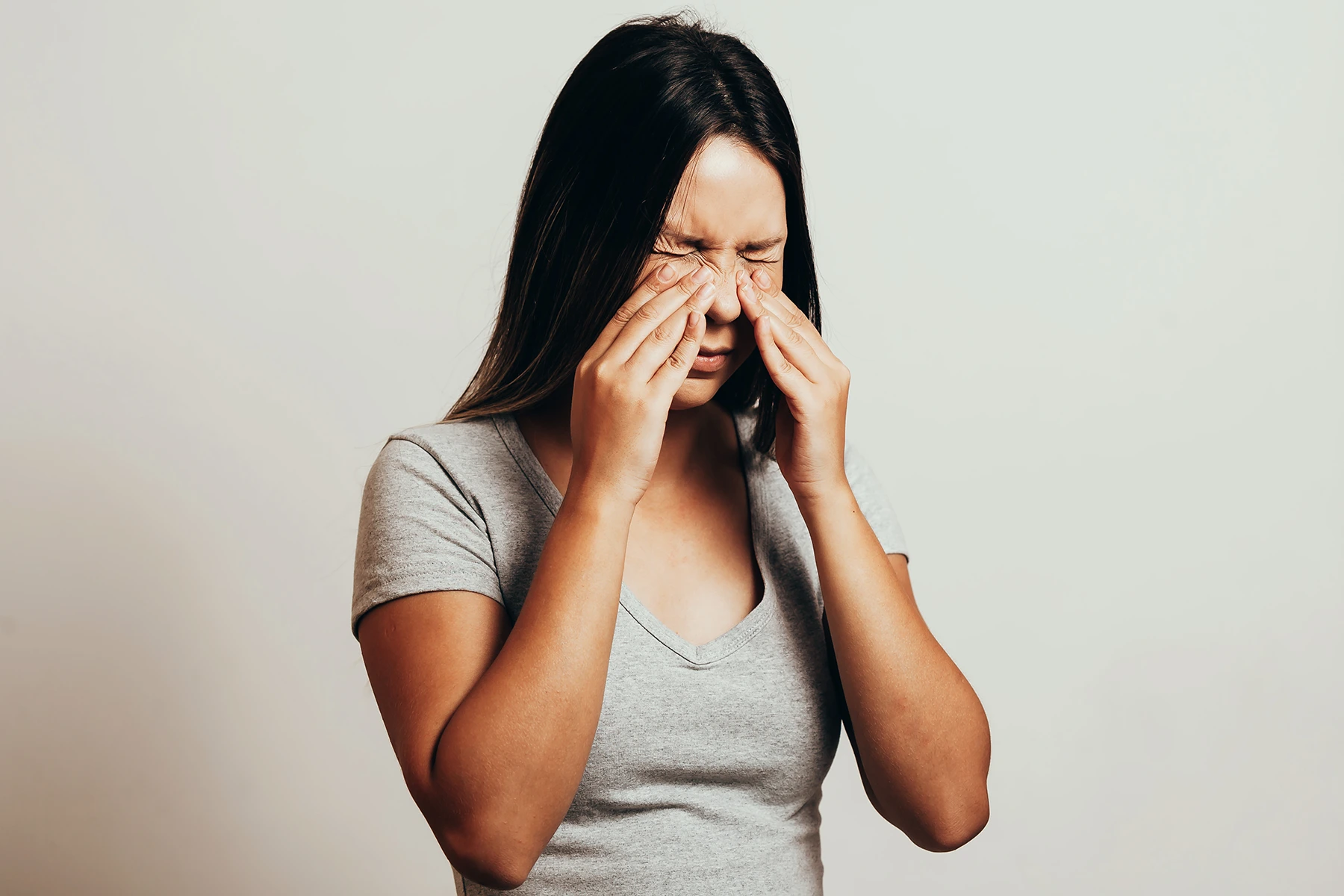Rhinitis: What is Happening in My Nose?

In simplest terms, rhinitis is inflammation in your nose that leads to sneezing, itching, runny nose and nasal congestion.
“The types of rhinitis are based on what specifically causes the inflammation,” says Aura Marina Acosta Calderon, M.D., an otolaryngologist with the University of Miami Health System. “For example, the cold and flu viruses can cause a form of rhinitis. There are other types of rhinitis like allergic rhinitis, which is caused by specific allergens.”
Allergic rhinitis, or hay fever, is the most well-known form of the condition and affects up to 30% of people worldwide. However, rhinitis can be caused by nonallergic factors, as well. Irritants in the air, like strong odors, cigarette smoke or pollution, can lead to rhinitis, as can changes in temperature, some medications and even certain beverages.
“Some types of rhinitis also can be frequently associated with inflammation of the sinuses (sinusitis), asthma, recurrent bronchitis, pneumonia and other pulmonary diseases,” says Dr. Acosta. “There is some evidence to suggest that people with allergic rhinitis may be more susceptible to viral infections and sinusitis due to chronic inflammation.”
Symptoms of rhinitis
The causes of rhinitis may differ, but allergic and nonallergic (vasomotor) rhinitis share similar symptoms. This includes:
- Nasal symptoms like sneezing, a runny nose or a stuffy nose
- Itchiness in the eyes, ears, nose or throat
- Frequent or recurring ear infections
- Breathing through the mouth
- Snoring
- Fatigue
These symptoms tend to come and go as a person gets exposed to triggers like allergens, irritants or viruses. However, in some cases, rhinitis can become more of a chronic condition and cause symptoms more frequently than not.
Can you prevent rhinitis?
There are several ways to prevent or treat rhinitis symptoms and get back to feeling your best. “The most important step for both allergic and nonallergic rhinitis is avoidance,” says Dr. Acosta. “Try to recognize what triggers your symptoms and then avoid exposure as much as possible.”
For allergic rhinitis, the Asthma and Allergy Foundation of America (AAFA) says prevention efforts include limiting outdoor exposure on high pollen days or wearing sunglasses and a wide-brimmed hat to keep allergens out of your eyes and face.
Avoid touching or rubbing your nose, and frequently wash your hands with soap and water. You can also take steps around your home to reduce symptoms like:
- keep your pets out of the bedroom
- leave your windows closed on high-pollen days
- invest in certified asthma and allergy-friendly filters for your vacuum and HVAC system
If these steps do not help, then it’s worth visiting a health care provider to find the right treatment plan for you. Medications, such as antihistamines and decongestants, are highly effective at easing rhinitis symptoms. Topical steroid sprays and decongestant nasal sprays may prove helpful. In the case of topical decongestants, patients need to limit their use to just 3-5 days at a time.
Dr. Acosta adds that immunotherapy in the form of shots, tablets or drops under the tongue can help people with allergic rhinitis, if avoidance and medications are ineffective.
“Any patients with nasal symptoms, whether chronic, seasonal or recurrent, should consider seeking specialized evaluation with either an ENT or allergist to obtain a more accurate diagnosis and a comprehensive range of treatment options,” says Dr. Acosta.
Wyatt Myers is a contributor for UHealth’s news service.
Sources
Allergy Statistics, American Academy of Allergy, Asthma & Immunology (AAAAI), 2024, https://www.aaaai.org/about/news/for-media/allergy-statistics
Interview with Aura Marina Acosta Calderon, M.D. an otolaryngologist with the University of Miami Health System.
Rhinitis, Johns Hopkins Medicine, 2024, https://www.hopkinsmedicine.org/health/conditions-and-diseases/rhinitis
Nonallergic Rhinitis, Mayo Clinic, 2024, https://www.mayoclinic.org/diseases-conditions/nonallergic-rhinitis/symptoms-causes/syc-20351229
Nasal Allergies (Rhinitis), Asthma and Allergy Foundation of America (AAFA), 2024, https://aafa.org/allergies/allergy-symptoms/rhinitis-nasal-allergy-hayfever/
Tags: antihistamine nasal sprays, Dr. Aura Marina Acosta Calderon, ENT, hay fever symptoms, rhinitis include, symptoms of allergic rhinitis
